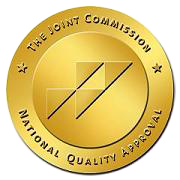Adult ARFID Linked With Anxiety, ADHD, OCD, PTSD and Autism
Clinically reviewed by:
Jamie Manwaring, PhD
Renee D. Rienecke, PhD, FAED

Have you ever wondered if your highly specific eating habits were more than just “picky eating”?
Often mislabeled as such, avoidant restrictive food intake disorder (ARFID) is a condition where an individual experiences nutritional deficiencies because they are avoiding specific foods, or restricting the amount of food they eat.
Adults with ARFID often have inflexible eating patterns, which can leave them labeled as extremely “picky” with regard to food selection. If an individual with autism appears more "picky" but they're functioning relatively well, and not losing weight, they may not fit the criteria for ARFID.
Getting an ARFID diagnosis as an adult
In 2013, ARFID was officially added to the Diagnostic and Statistical Manual of Mental Disorders, Fifth Edition (DSM-5), a manual that helps providers make mental health diagnoses. Still, many adults who struggle with ARFID are not properly diagnosed.
“An adult with ARFID might seek treatment with a medical provider, but if the provider isn’t as aware of ARFID, they may be more apt to send them to gastrointestinal specialists or other non-eating disorder providers,” explains Jamie Manwaring, PhD, research team member at Eating Recovery Center (ERC) and lead author of a new study on ARFID in adults alongside ERC’s director of research, Renee Rienecke, PhD, FAED.
Michelle Jones, PhD, clinical psychologist and clinical manager at Eating Recovery Center shares that one important sign to watch for when diagnosing ARFID in adults is nutritional deficiency.
"Somebody who's restricting their eating because they're trying to lose weight or because they're worried about their appearance would not meet criteria for ARFID. We're looking for a few different markers, and one of those markers is nutritional deficiency."
3 Types of ARFID in adults
Not all ARFID experiences are alike. While the types listed here all fall under the same clinical diagnosis of ARFID, it’s important to note this condition presents commonly in the three following ways:
- Avoidant: Individuals avoid certain types of foods because of their sensory features, causing a sensitivity or overstimulation reaction. It may be related to smell, texture or general appearance, including color (commonly associated with autism).
- Aversive: This type is based on fear, such as fear of choking, nausea, vomiting, pain and/or swallowing. This forces the individual to avoid the food altogether (commonly associated with OCD).
- Lack of Interest: Individuals may show little to no interest in food. This can make one forget to eat, show signs of a low appetite or get extremely distracted during mealtimes. Another symptom of this type includes extreme pickiness around foods, resulting in limited intake (commonly associated with ADHD).
ARFID symptoms in adults
The symptoms of ARFID in children and teens may look different from the symptoms of ARFID in adults. We review common ARFID symptoms found in adults below.
#1: Inflexible eating patterns
There is a clear distinction between food preferences, which everyone has, and the inflexible eating behaviors found in people diagnosed with ARFID. Inflexible behaviors associated with adult ARFID include the following:
- Refusal to try different foods or new types of food
- Requiring extremely specific preparation of food choices
- Sensitivity to the sensory experience of a food, such as smell or texture
#2: Sensory sensitivity
Adults with ARFID may restrict the foods they eat based on the sensory properties of the food (chewy, sticky, crunchy, etc.). ARFID is known to overlap with multiple conditions that involve sensory sensitivity. Notably, this includes an overlap between ARFID and autism spectrum disorder.
#3: Lack of interest in foods
Some people with ARFID simply do not find food interesting. They lack strong hunger cues. They may forget to eat or go long periods without eating. This symptom commonly co-occurs with ADHD.
Shares Dr. Jones, "If you have ADHD, your attention is not focused in a way that allows you to pay attention to that in quite the same way as someone with a neuro-typical brain. Eating takes a lot of work, organization and coordination to prepare food. It can end up feeling like a chore."
#4: Food fears & anxiety
Another common symptom of ARFID in adults is fear-based food restriction. Individuals who experience distress about certain foods can have an emotional or physical reaction due to fear of having an allergic reaction, choking or vomiting. Because of this fear, they may avoid certain foods and/or textures that have nutritional value. An adult with ARFID may also appear anxious around food.
Anxiety disorders are common in individuals with fear-based responses to foods. People with fear-based avoidance of foods may also have obsessive-compulsive disorder (OCD). In these cases, a person may have had a traumatic event or perceived trauma related to vomiting, choking, exposure to an allergen, or another uncomfortable and negative response to a food they ate. For these individuals, exposure therapy can be helpful.
#5: Low body weight & malnutrition
Fear-based food restriction can also result in low body weight in individuals with ARFID. Nutritional deficits are also common in those diagnosed with ARFID. Very low body weight is also found in other common eating disorders.
Causes of ARFID in adults
There is no single cause of ARFID, and the research is still quite limited. However, new research from our team at ERC Pathlight shows that, for most adults with ARFID, onset of illness occurred during childhood.
The various causes of ARFID include the following factors:
- Biological
- Genetic
- Psychological
- Sociocultural
As an example, every human being is born with a genetic code, which may exhibit patterns of certain mental and physical health conditions, such as ARFID.
Adults with symptoms of anxiety and obsessive compulsive disorder (OCD) may also experience ARFID symptoms. Our research also found that about one-third of study participants (adults with ARFID at ERC) had moderate to severe OCD symptoms, and one-third of the sample had a probable post-traumatic stress disorder diagnosis.
Getting an ARFID diagnosis as an adult
The most important step toward getting treatment as an adult for ARFID is having an accurate diagnosis. Within an ARFID diagnosis there are different presentations as listed above, and there is not a “one size fits all” treatment approach for each.
To ensure an accurate diagnosis, you will want to find providers who are experienced and trained in eating disorder treatment.
“If your doctor suspects a case of ARFID, they should make a referral to a therapist and dietitian with the clinical expertise to get a consensus,” explains Ovidio Bermudez, MD, FAAP, CEDS, senior medical director of child and adolescent services and chief clinical education officer at ERC, in this ARFID podcast. Only then should treatment begin.
Depending on the diagnosis and following a comprehensive assessment, treatment may include some or all of the following interventions:
- Medical and psychiatric stabilization
- Nutritional rehabilitation and weight restoration
- Family/caregiver involvement
- A multidisciplinary treatment team approach (medical, psychosocial, nutritional)
- Collaboration with referring providers
We discuss our approach to treating ARFID in adults in more detail below.
ARFID treatment for adults
ARFID treatment addresses and includes the following:
- The patient's developmental history and stage of development
- Internal and external motivators as well as goals and values
- Family dynamics and family involvement
- Multidisciplinary treatment team alignment
- Seamless treatment team communication
- Collaboration with referring providers
A unique component of ARFID treatment at ERC -- as well as all our treatments for eating disorders -- is continuous education of patients and caregivers alike about the diagnosis, interventions, treatment expectations and treatment goals. We support you from assessment to discharge -- and beyond. Shares Dr. Jones,
"Once people with ARFID get on this routine of eating regularly, their body feels better and their brains function better."
To learn more about ERC's approach to ARFID treatment, check out this episode of the Mental Note podcast, "What Is ARFID Anyway?"
An ARFID expert weighs in
The treatment approach at ERC is unique for each individual, Dr. Jones shares, "One of the things that I feel really passionate about is making sure that we are not forcing anyone with an ARFID diagnosis in our expectations of recovery. This is really about their life and their functioning and how we can help them function in a way that is going to better their life and not cause adverse experiences."
Dr. Jones continues, "For someone with ARFID, their version of recovery is probably not going to look like typical normative eating, especially if their symptoms are more severe. We might help them feel comfortable ordering off a restaurant menu so they can go on dates, socialize and not be embarrassed. We also help them get to a healthy weight if that's needed. We look at functionality and physical health more than anything else vs. putting them in a box of what normative eating looks like to everyone else."
You can recover from ARFID
If you or a loved one has recently been diagnosed with ARFID as an adult, know that you’re not alone! It might feel like no one understands what you’re going through. If you feel this way, know that your feelings are valid and that there are others out there who “get it.”
If you’re looking for additional support, you can always give us a call at 877-825-8584 or fill out this form to share your story and discuss options. We are here for you.
Related Reading:
Struggling with an eating disorder?
One conversation can make all the difference. Connect with us today.
Get Help NowConnect With Us




